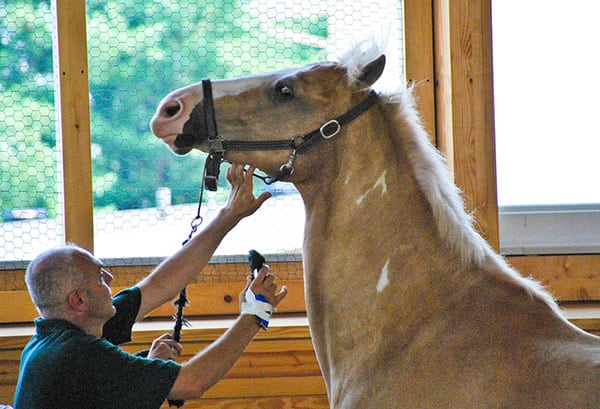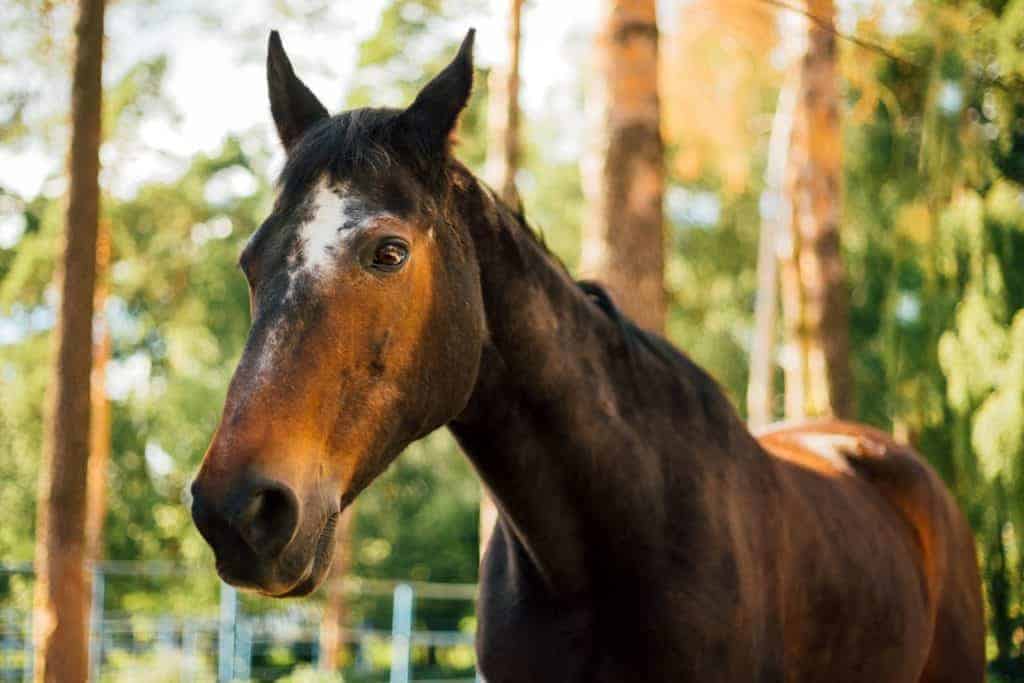
NexHA, The Horse Bring You Equine Fitness and Conditioning Awareness Week
Learn how to safely improve your horse’s fitness all week on TheHorse.com. Sponsored by NexHA.

Learn how to safely improve your horse’s fitness all week on TheHorse.com. Sponsored by NexHA.

International units are used to quantify similar biologically active substances such as vitamins and hormones. One equine nutritionist explains.

Learn about 5 reasons to use complementary therapies such as acupuncture and chiropractic for your horse and the research behind them.

Determine why a horse is head shy, and then use learning theory principles to reverse the behavior.

Learn to read the vast and varied signs of equine gastric ulcer syndrome.

From reinforcing behaviors to reading facial expressions, adopting welfare-friendly handling practices can improve equine well-being and human safety.

Do certain concentrates increase gastric ulcer risk? A nutritionist answers this commonly asked question.

What are the most common neck issues in horses and how are research and technological advancements helping veterinarians diagnose them?

Researchers believe adding alfalfa pellets to your horse’s diet might help manage and prevent ulcers in the lower region of the stomach.

An owner seeks advice on managing a senior horse with PPID (formerly Equine Cushing’s) disease during a heat wave.

Learn about 4 common injuries veterinarians see in these athletes, how they diagnose them, and what treatments and rehabilitation methods they use.

A detailed guide on whether hoof boots are suitable for your horse, covering reasons for use, selection, fitting, maintenance, and potential issues.

Sand accumulation in the horse’s gut can lead to obstructions, irritation, and signs of colic, weight loss, and diarrhea.

How long do I need to wait after sedation and injections before hauling my horse back home?

Learn how to assess your senior horse’s quality of life and know when it’s time to let go.

Glandular ulcers involve different risk factors and treatments than squamous ulcers. To help, address an affected horse’s exercise frequency, stress, and environment.
Stay on top of the most recent Horse Health news with
"*" indicates required fields